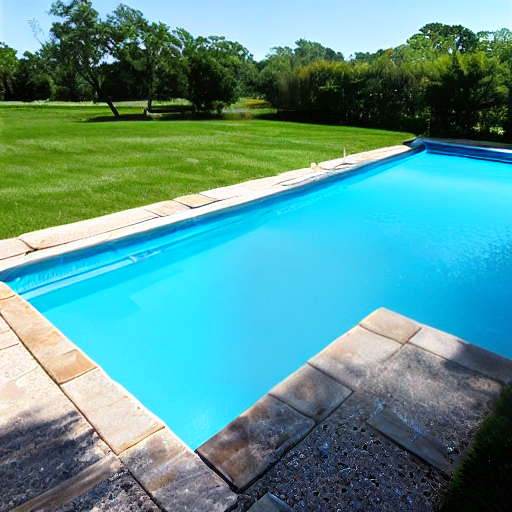Mastering Year-Round Pool Clarity in the Northeast
At Puravida Outdoor Living, we understand that in the Northeast, the swim season is short and having crystal clear water is critical to make the most of your swimming pool investment. As swimming pool professionals and Certified Service Technicians, we’re excited to take you on a journey through the science of pool water maintenance, tailored to the unique challenges presented by our Northeastern climate.
The Northeastern Climate Challenge
In the Northeast, our pools experience a wide range of weather conditions, from scorching summers to frosty winters. This climate diversity demands a deeper understanding of pool water maintenance.
Here’s how we adapt the fundamentals to our region:
Water Chemistry Essentials:
pH Level: The pH level remains the mood ring of your pool, measuring its acidity or alkalinity. However, in the Northeast, where we face acidic rain and fluctuating temperatures, maintaining a pH level between 7.4 and 7.6 becomes even more critical. This range not only ensures comfortable swimming but also protects your pool equipment from the region’s unique challenges.

Crystal Clear water in the pool is the goal of every pool owner
Total Alkalinity (TA): Northeastern pools, subject to frequent weather shifts, benefit greatly from well-maintained TA levels, typically between 80 and 120 ppm. TA acts as a buffer, preventing sudden pH swings caused by temperature variations.
Chlorine: In our climate, the fluctuating temperatures of the Northeast can challenge chlorine stability. We recommend keeping chlorine levels between 1.0 and 3.0 ppm, with occasional adjustments during extreme weather changes to ensure safety and sanitation.
Cyanuric Acid (CYA): Shielding chlorine from UV degradation is vital in the Northeast, where we experience varying levels of sunlight throughout the year. Maintain CYA levels between 30 and 50 ppm to protect your chlorine investment.
Calcium Hardness: Preventing corrosiveness and scaling remains crucial for your pool’s longevity. The recommended calcium hardness level of 100 to 400 ppm, depending on the type of pool surface you have, helps Northeastern pools weather the seasonal changes.
Filtration and Circulation:
Filtration: In the Northeast, where leaves and debris fall with each season change, your filtration system takes on a heavier workload than in other areas of the country. Regular maintenance ensures your filter is ready to combat the Northeast’s unique debris challenges.
Circulation: Proper circulation is key when adapting to climate extremes. Efficient pool pumps and strategically placed return jets ensure chemicals disperse evenly and prevent stagnant areas where algae and bacteria thrive.
Your Northeastern Pool Water Maintenance Routine:
Testing: Given our region’s weather variations, precise testing is paramount. Use reliable test kits or strips to gauge pH, chlorine, TA, CYA, and calcium hardness. Northeastern weather fluctuations make accuracy your greatest ally.
Balancing: With test results in hand, adjust chemical levels as needed to maintain them within recommended ranges, accounting for the Northeast’s rapid temperature changes.
Chlorination: In the Northeast, vigilant monitoring and adjustment of chlorine levels help keep your pool safe and inviting despite the climate’s mood swings.
Shock Treatment: Occasional shock treatments are necessary, especially after extreme weather conditions. Follow the instructions on your chosen shock treatment product diligently.
Cleaning: Regularly clear leaves and debris from your pool’s surface, as Northeastern seasons bring their own unique challenges to pool maintenance. Employ a pool vacuum to maintain a spotless floor and walls, and use brushing to prevent algae growth.
Filter Care: Northeastern pools, prone to leaves and debris as well as heavy pollen, require consistent filter maintenance to ensure optimal performance. Sand or DE filters benefit from regular backwashing, while cartridge filters should be cleaned according to manufacturer guidelines.
Equipment Inspection: Keep a close watch on your pool equipment—pumps, filters, skimmers—and promptly replace worn-out parts. Northeastern weather fluctuations can take a toll on your pool’s essential components.
Winterization: Given our cold winters, diligent winterization is vital to protect your pool from freezing temperatures. Follow a winterization checklist to safeguard your investment.
Professional Maintenance: Northeastern pool owners, facing a range of seasonal challenges, often opt for professional pool maintenance. These experts offer tailored advice and promptly address weather-related issues.
Environmental Considerations in the Northeast:
Sunlight: The Northeast’s varying sunlight levels make pool stabilizer (CYA) a valuable shield for your chlorine against UV degradation.
Temperature: Managing chemical balance and filtration becomes even more crucial during temperature fluctuations in the Northeast.
Heavy Usage: As the Northeastern summer brings friends and family together, be prepared for increased pool usage, which may introduce contaminants.
Rainfall: Frequent rainfall can impact your pool’s pH and dilute pool chemicals, so be ready to test and adjust after heavy rain.
At Puravida Outdoor Living, we take pride in being more than just a pool company; we’re your partners in creating the perfect outdoor haven, no matter the Northeastern season. Our commitment to pool water chemistry is a reflection of our dedication to your unique needs. Questions? Feel free to Contact US today!
